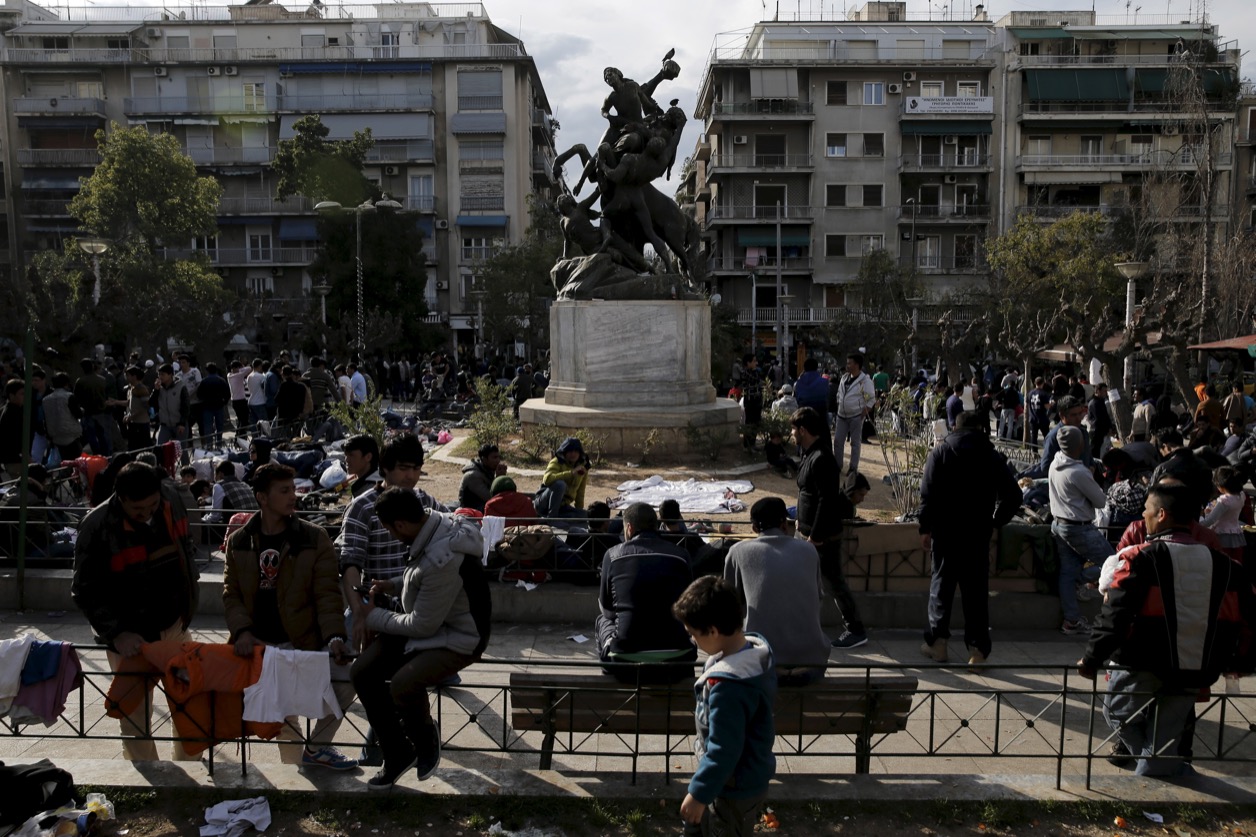
Busybodies of the Small Town
by Kathryn Sandilands | December 22, 2017
My grandmother is eighty-one years old and hasn’t yet learned how to sit still. This afternoon she’s delivering poinsettias to a woman from her church whose husband is unwell, then going to the fruit shop, the deli, the butcher’s. She’s talking – in that current-quick way of hers – about cooking a few dinners for the woman across the road, who has recently had an operation on her foot. The coffee I’ve made her is quickly gulped down and she’s halfway out the door before I can remind her that she’s forgotten her walking stick. “Oh!” she exclaims, “I’ve already left that in the bookshop once today.”
In the course of the average week she attends an amateur bridge club, her local church choir rehearsals, and an informal reading group made up of a revolving door of women in the village aged seventy and older. The primary function of all of these events is undoubtedly social – the same way that her occasional coffee mornings in support of the Royal National Lifeboat Institution serve more as a whole village tea party than a solely charitable affair. Most of the time, she seems to consider herself amongst the younger, more spritely subset of these crowds because she is constantly driving the others back and forth – to the choir Christmas party, or else to visit friends in various hospitals and care homes.
There are some signs that she’s starting to slow down. Up until a few years ago she was part of the “Meal on Wheels” service, delivering lunches to the elderly people in the community who struggled to cook for themselves. It’s unclear whether she felt that she was no longer able to do so physically, or whether she simply abandoned the official channels in order to commit more time to making enough mince pies to feed most of our small Scottish village for the month of December. A cursory look in her freezer will reveal astounding quantities of lentil soup: she has apparently made the authoritative decision that this is the most appropriate cure for her neighbour’s recent hip replacement.
It’s not a one-way street. When my grandmother injured her back over the summer (in an ill-fated gardening attempt, the details of which are still unclear) she didn’t have to cook for weeks. Instead, neighbours brought round a spare portion of their evening meal in plastic containers for her to consume the next night. Due to the number of offers from friends to “pick up a few bits and pieces from the shops”, her children and grandchildren were left with very few duties throughout this period of convalescence. This kind of busybody care is at once disconcerting and oddly pleasant, the kind of mesmerising normally found from watching a nature documentary where bees flit in and out of the hive.
The romanticised or else comedic vision of a tight-knit rural community seems to exist somewhere on the surface of these interactions. Beyond the informal support network created by the elderly inhabitants of the village, there exists a deeper politics. This can be observed in the banality of the various local issues which have been taken on by predominantly older petitioners: the raising of funds to protect the public toilets; the outrage over the closure of the only bank in town; the widespread panic at rumours that the nursing home might soon disappear. The gradual dissolution of local services in the area has affected this demographic more than any other – it’s no wonder the ageing population has taken on a role as campaigners.
All of these efforts are taken very seriously, but smaller habits have become equally crucial in maintaining a grip on the village culture that my grandmother has known since she and my grandfather moved into their house on the high street in the early sixties. It’s a matter of principle that the majority of the shopping should be done within the village, even if this means shuffling the length of town from the bakery to the shoe shop. When the “community cinema” – made up of a licence, a projector, and a village hall – puts on a vaguely outdated film once a month, she attends regardless of her interest in the movie being played. (I received a very agitated text message on the topic of her distaste for La La Land last month). Instead of choosing from the larger selection of books at the nearby library, she waits for the mobile library van to stop practically outside her house every Monday at four o’clock.
Perhaps this is because, in her early eighties, my grandmother is finding the hour or so drive into Edinburgh to be more of a challenge than it once was. Supporting local businesses and community services benefits all parties when other amenities are out of reach. But her relationship with the area is not one of simple necessity. Before she retired, my grandmother taught music part-time at a handful of primary schools in the area. As a result, a large number of the people she encounters in town are ex-pupils, now grown and slowly moving back into the villages they grew up in. One of them is doing her old job, spending a few afternoon in all of the local schools each week.
That connection with village life is not entirely dying out. When I return from university after a few months away, people stop me on the high street to catch up. The owner of the local sandwich shop starts making my order before I tell her what I’m there for. But the same degree of familiarity with those who live nearby no longer exists. A close relationship between neighbours is for the most part an accident rather than a commonplace feature of life here. Maybe this can in part be linked to the simple fact that people are now able to travel further to work – the idealised tranquility of a small town for the evenings and weekends, with all of the buzz of the city during the working day. Our lives are busier now: we can communicate in seconds with someone half a world away, but those immediately next door have become mysteries to us.
And so my grandmother has become a relic of that older time. Her legs bother her more now – she’s less sure of the walk up the high street, where she still does most of her shopping, and she finds that standing to roll out the pastry for those mince pies is a little more difficult than it used to be. But she’s currently planning games for the Hogmanay party that her friends always host – the same party that my dad remembers from the New Years of his childhood, with the loud piano and the open door. “You can pop round for a bit of cake sometime this week,” she tells me, “Just make sure to call first so you know if I’m in or not.”
Image from flickr




